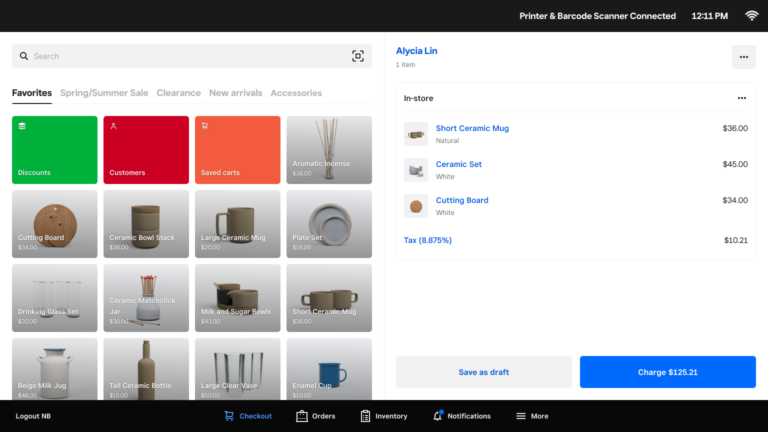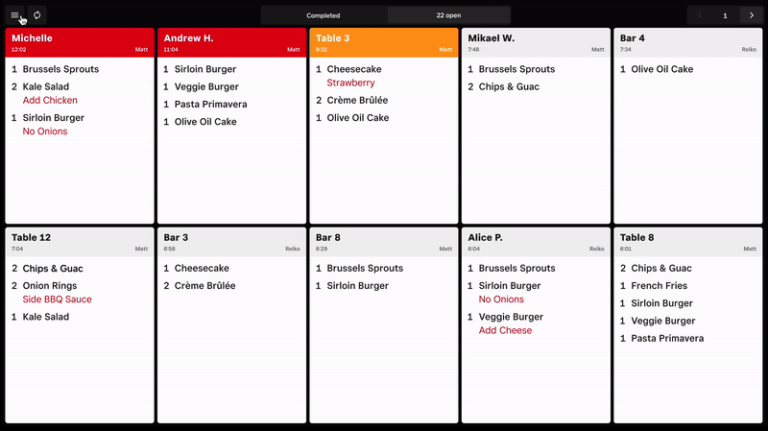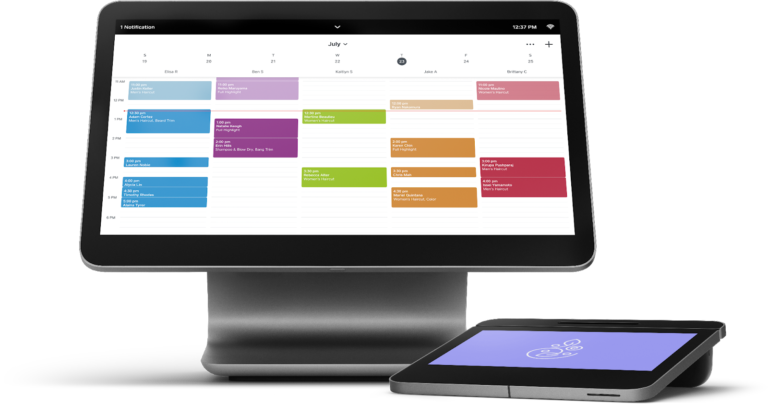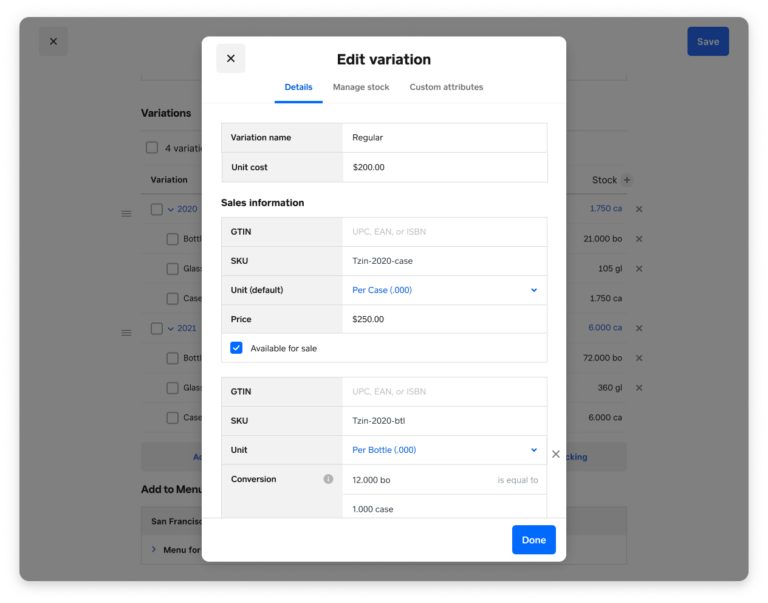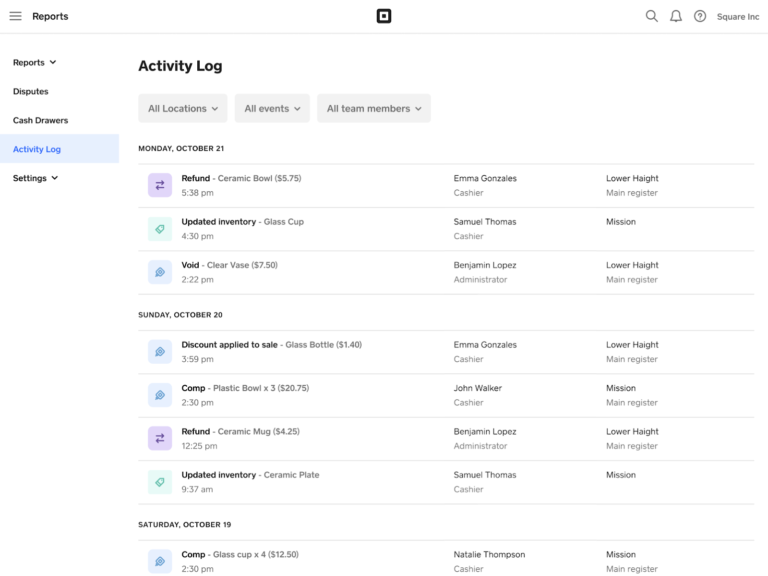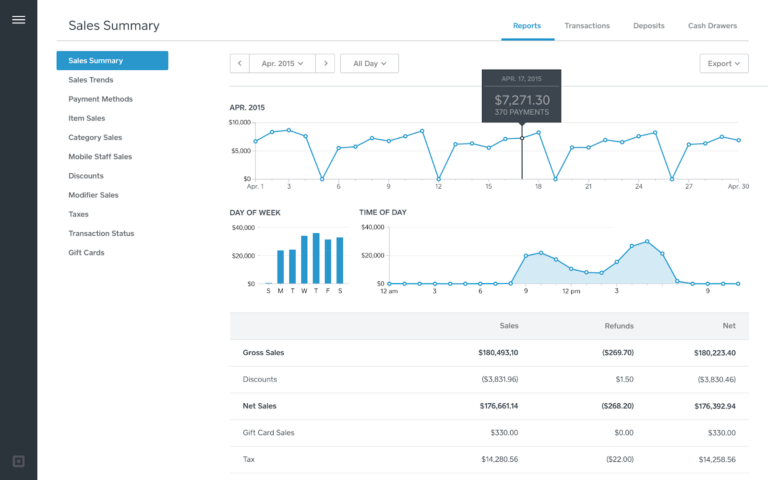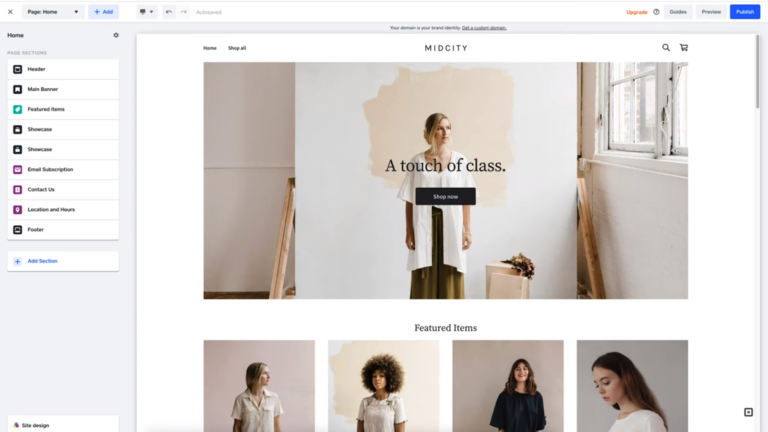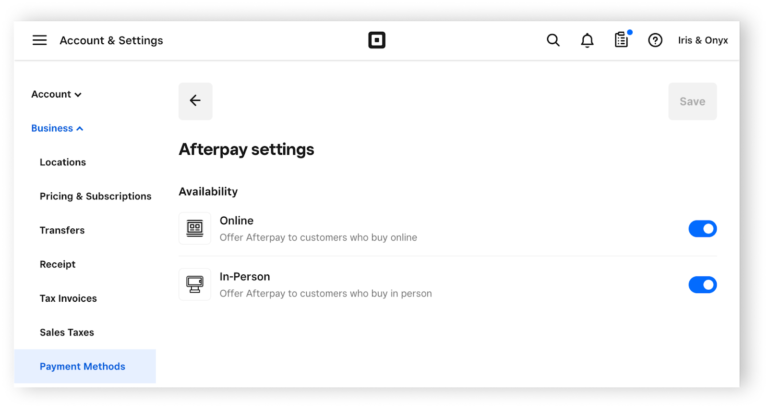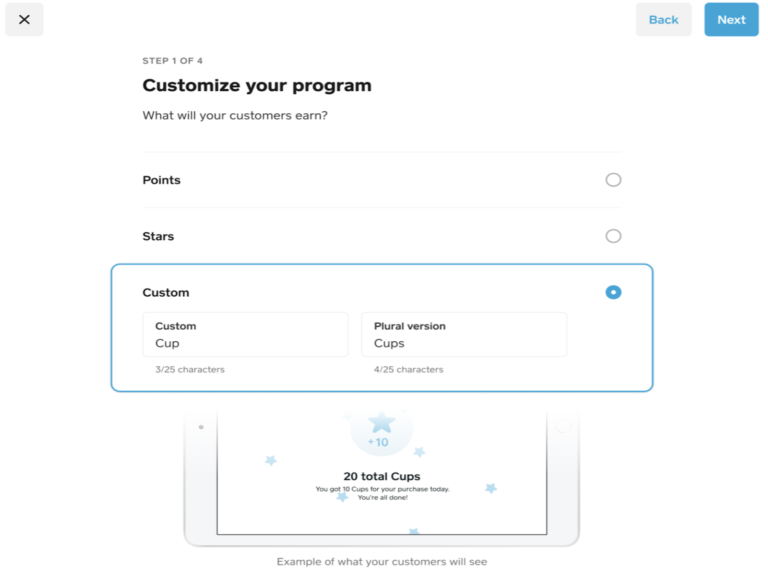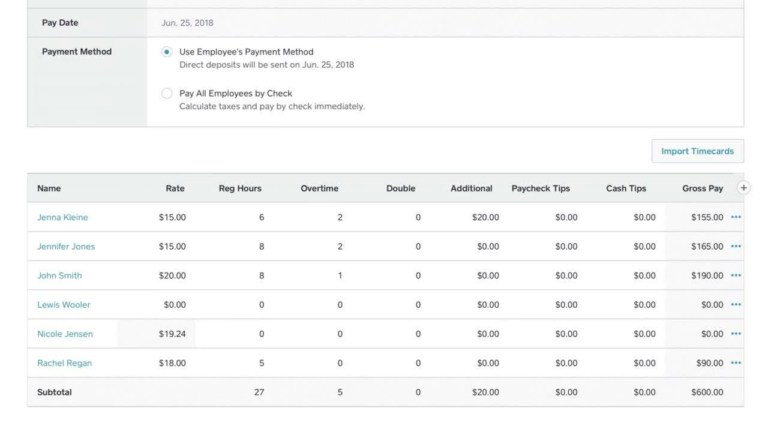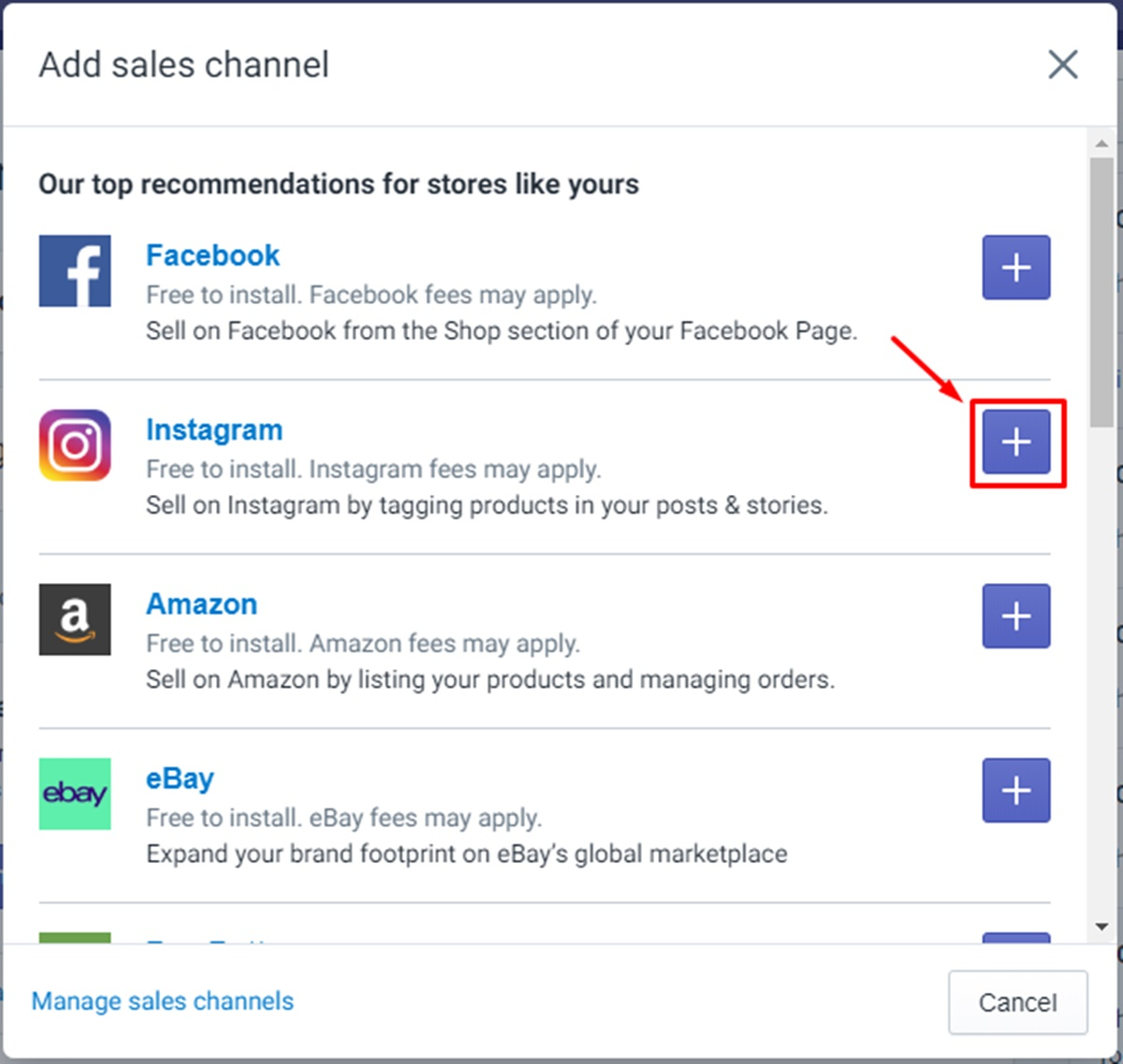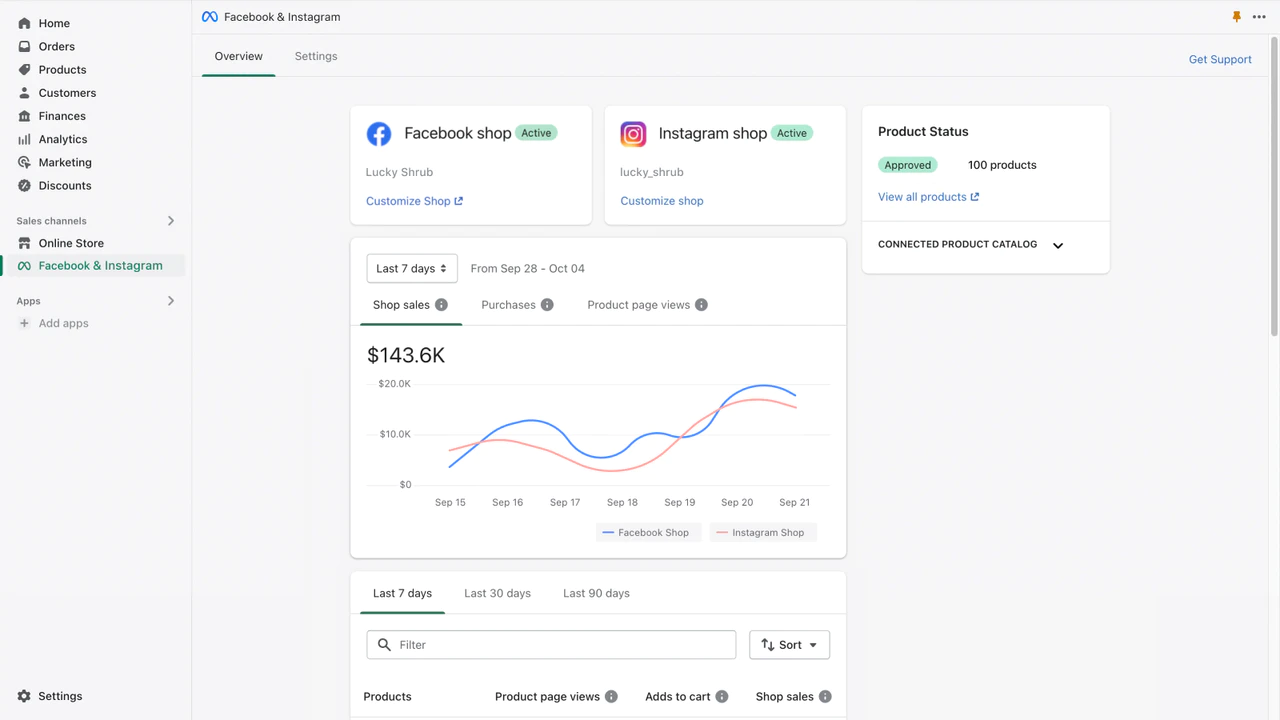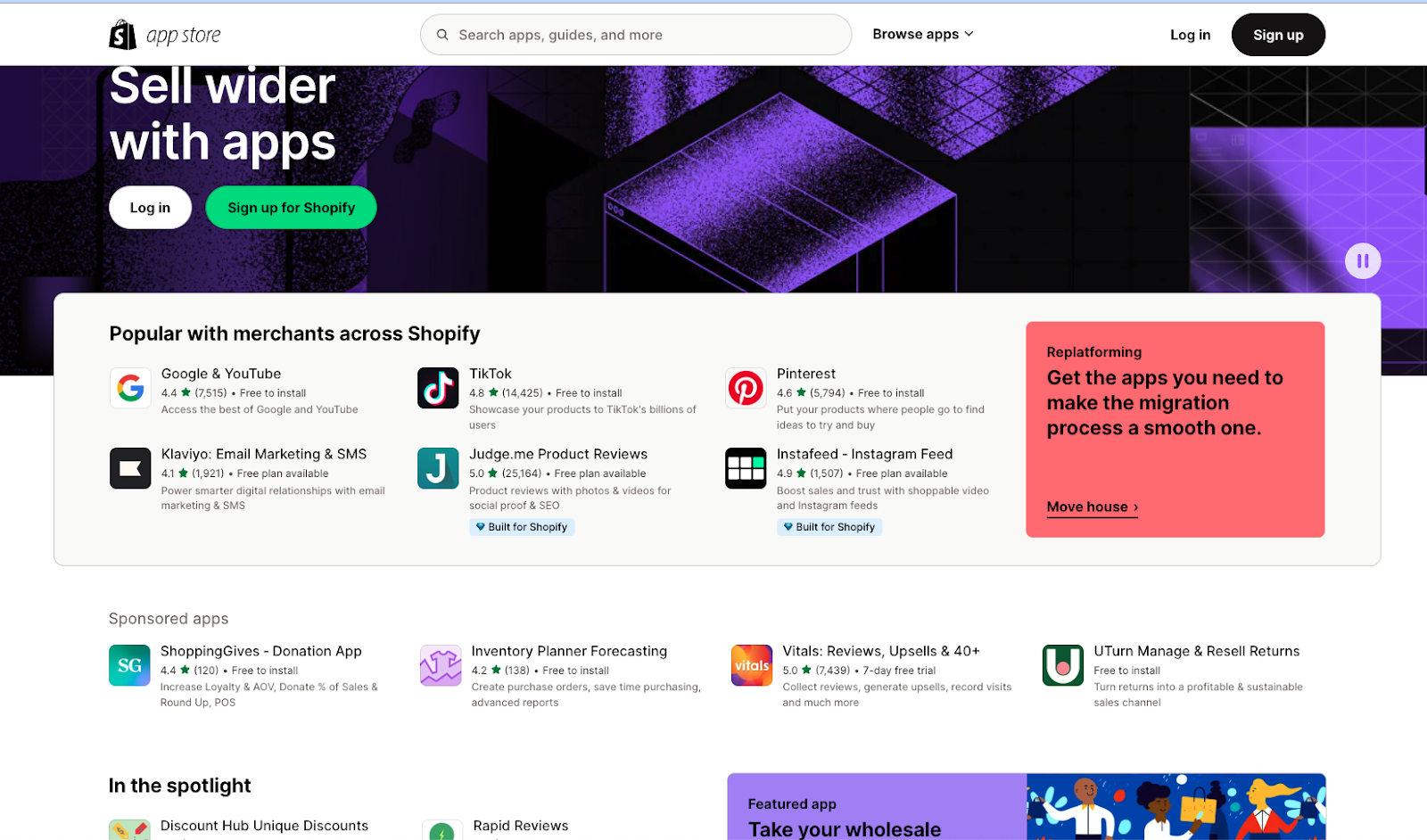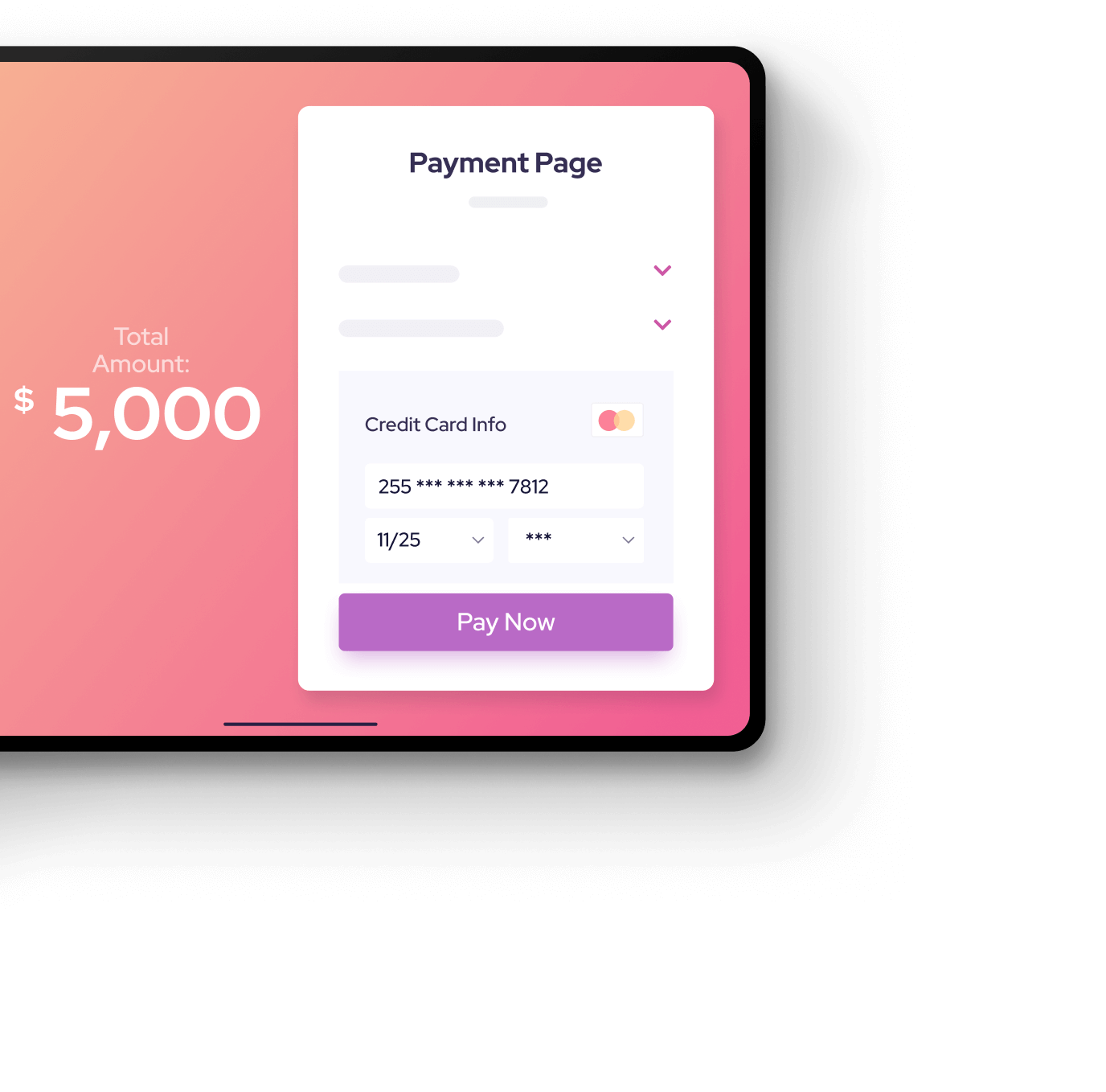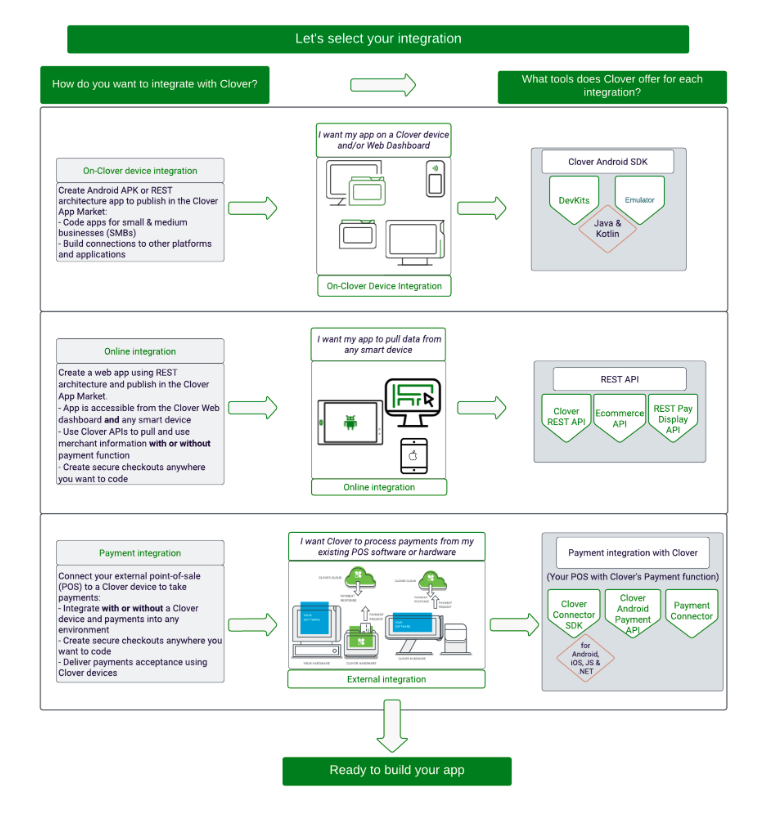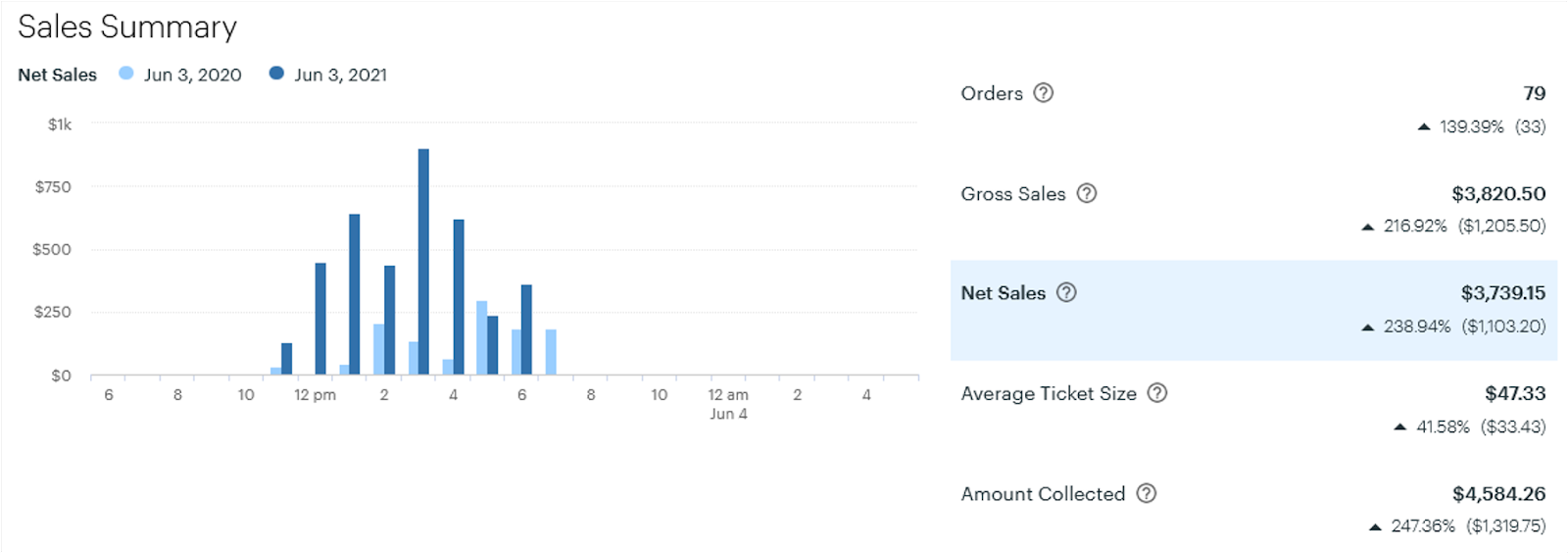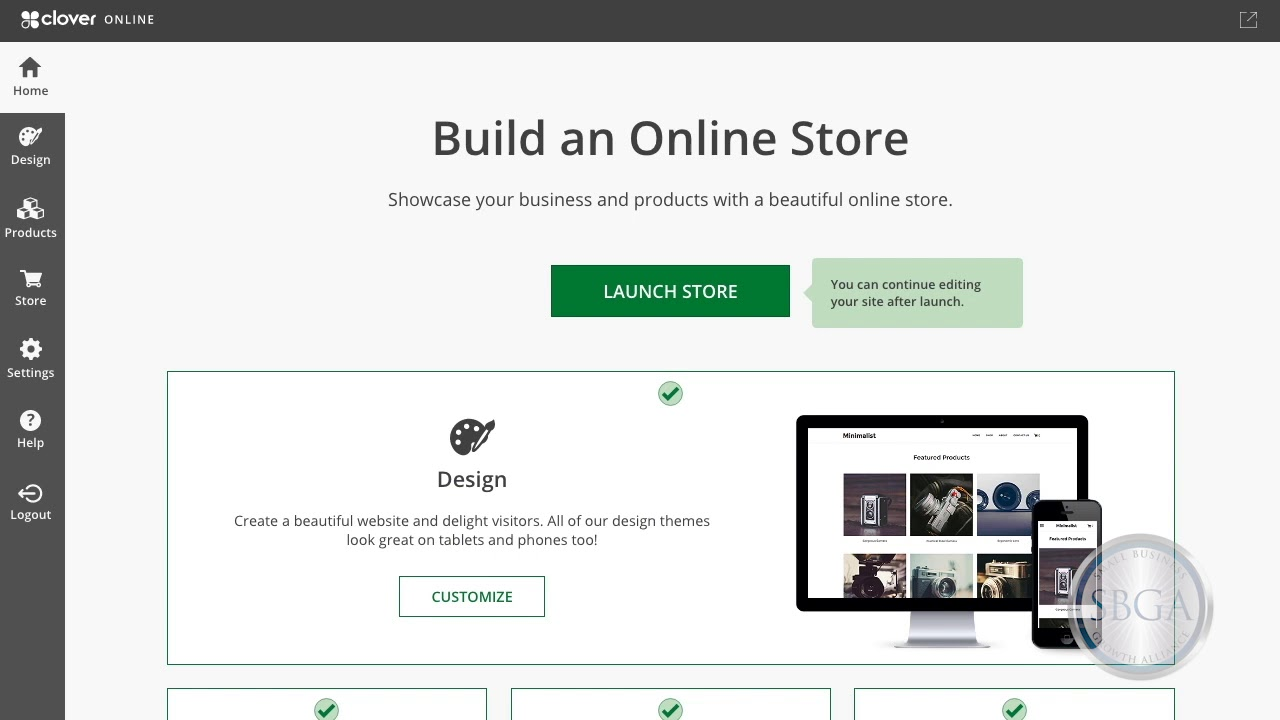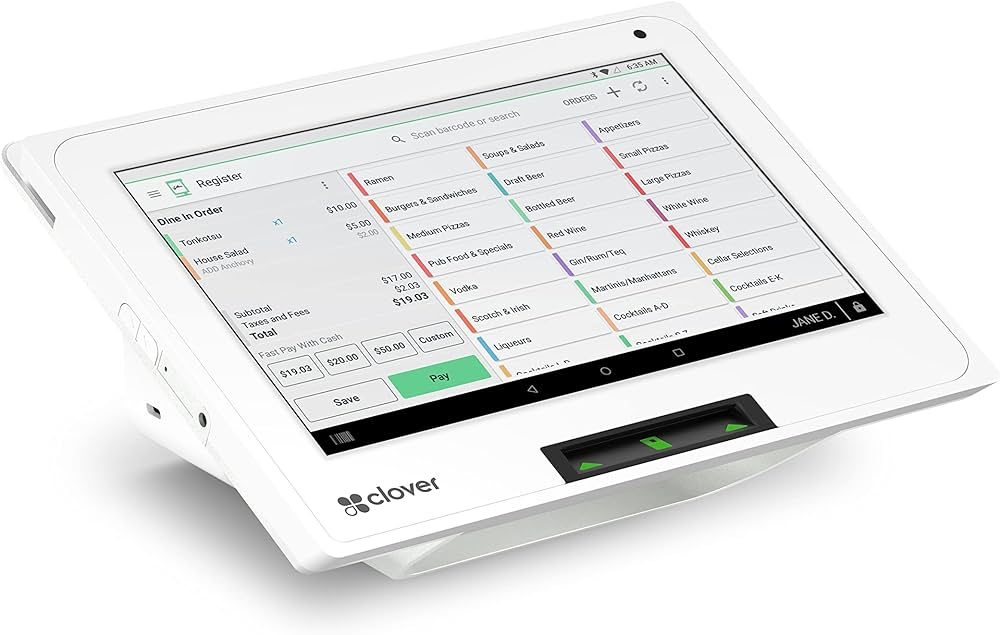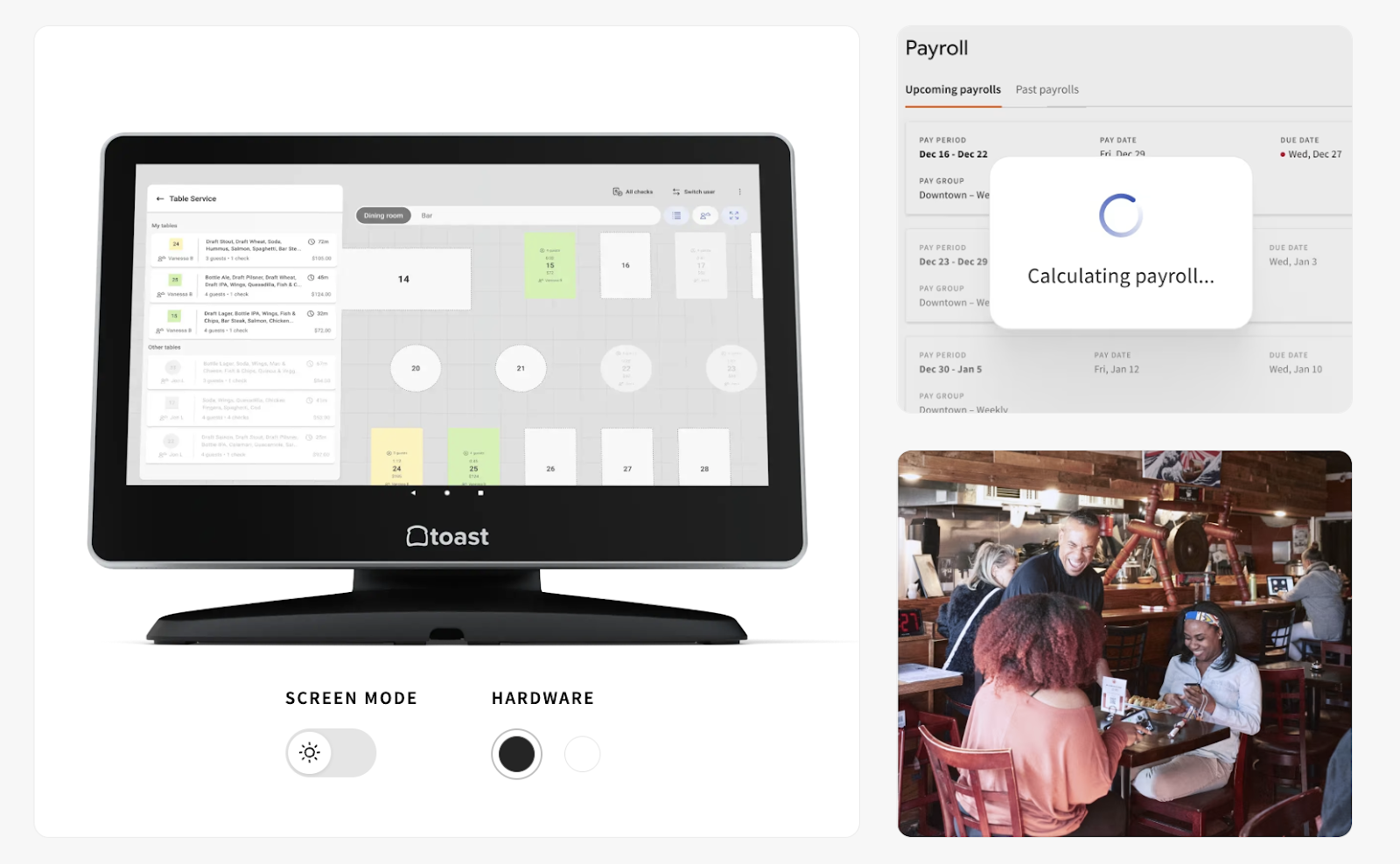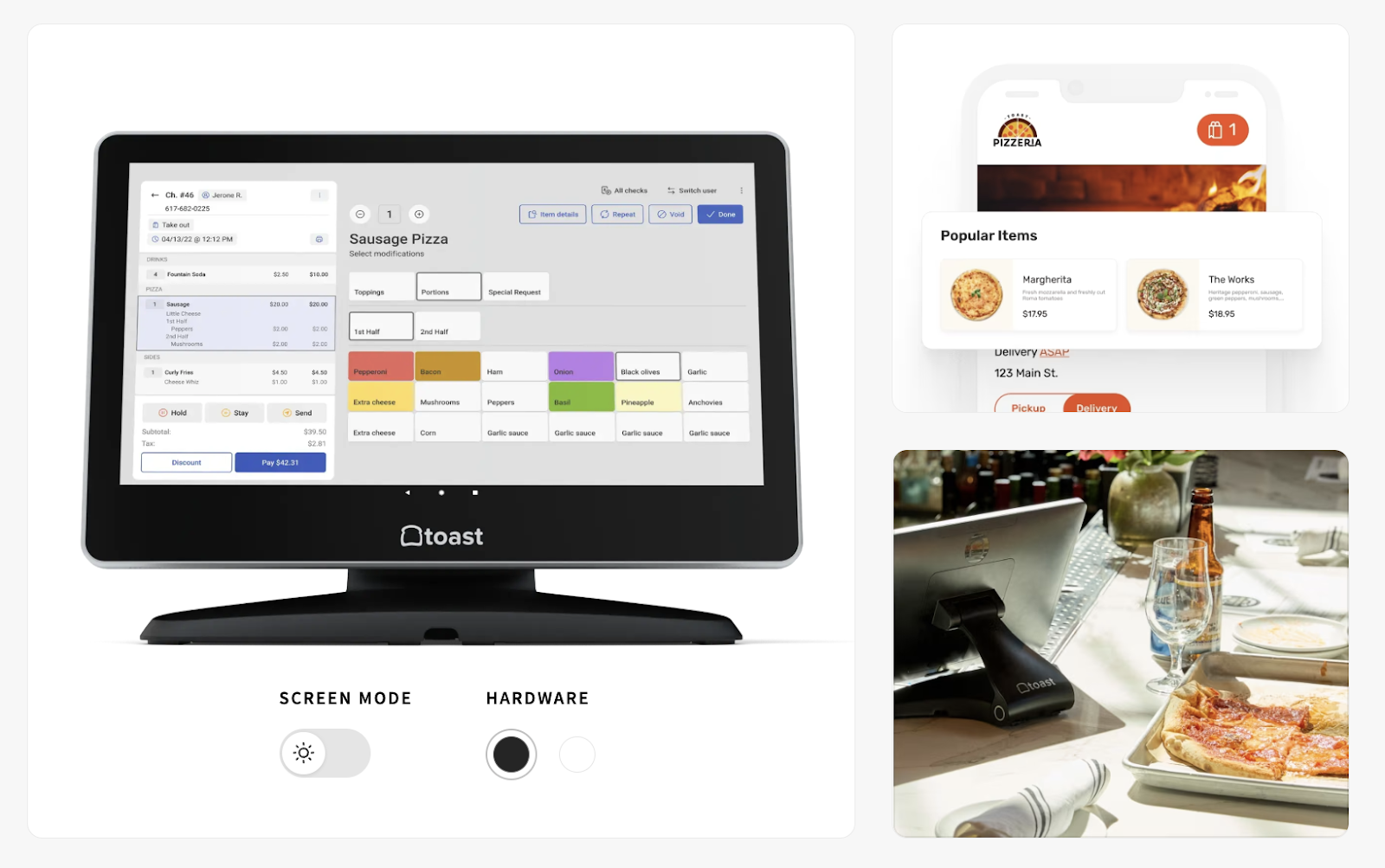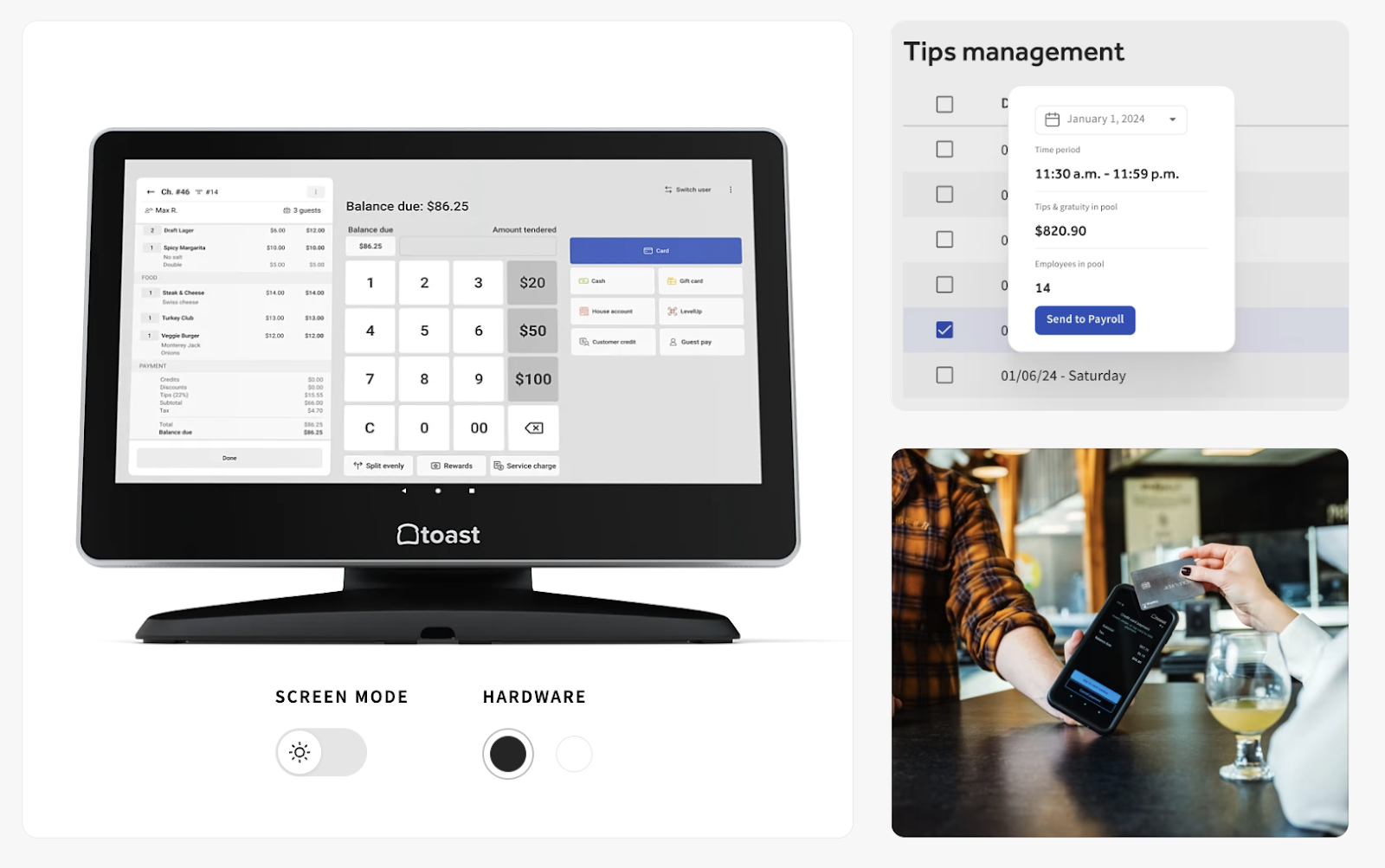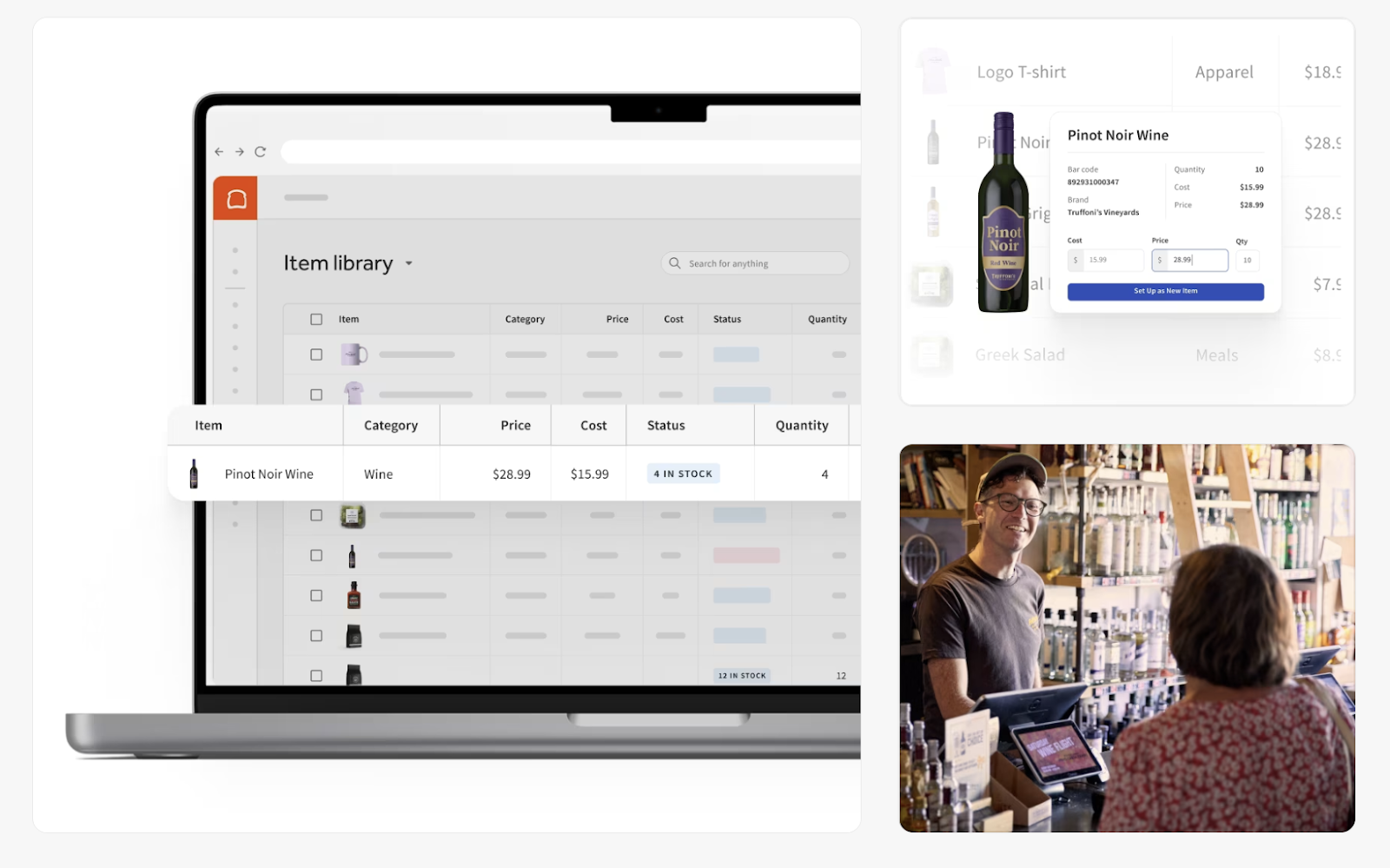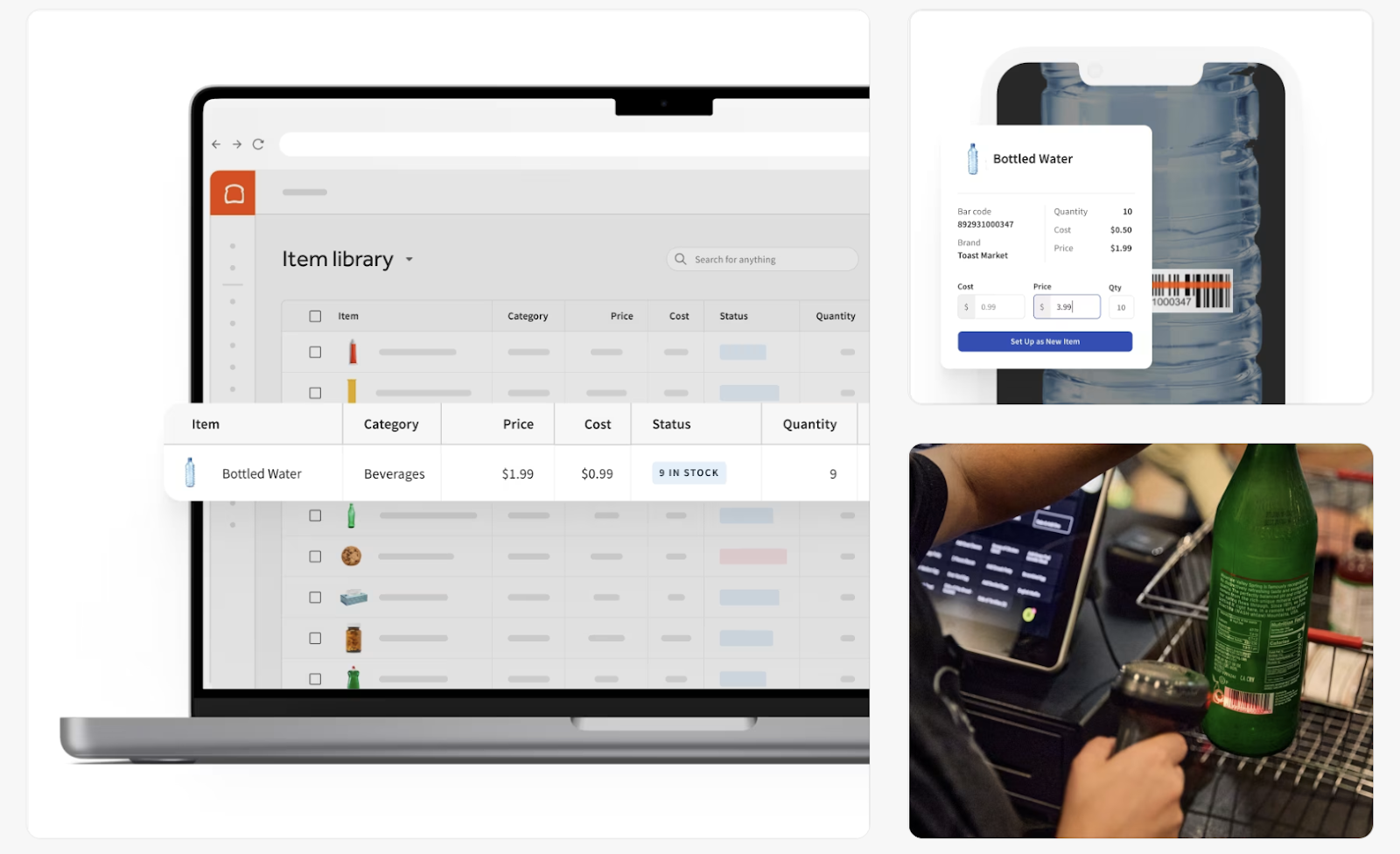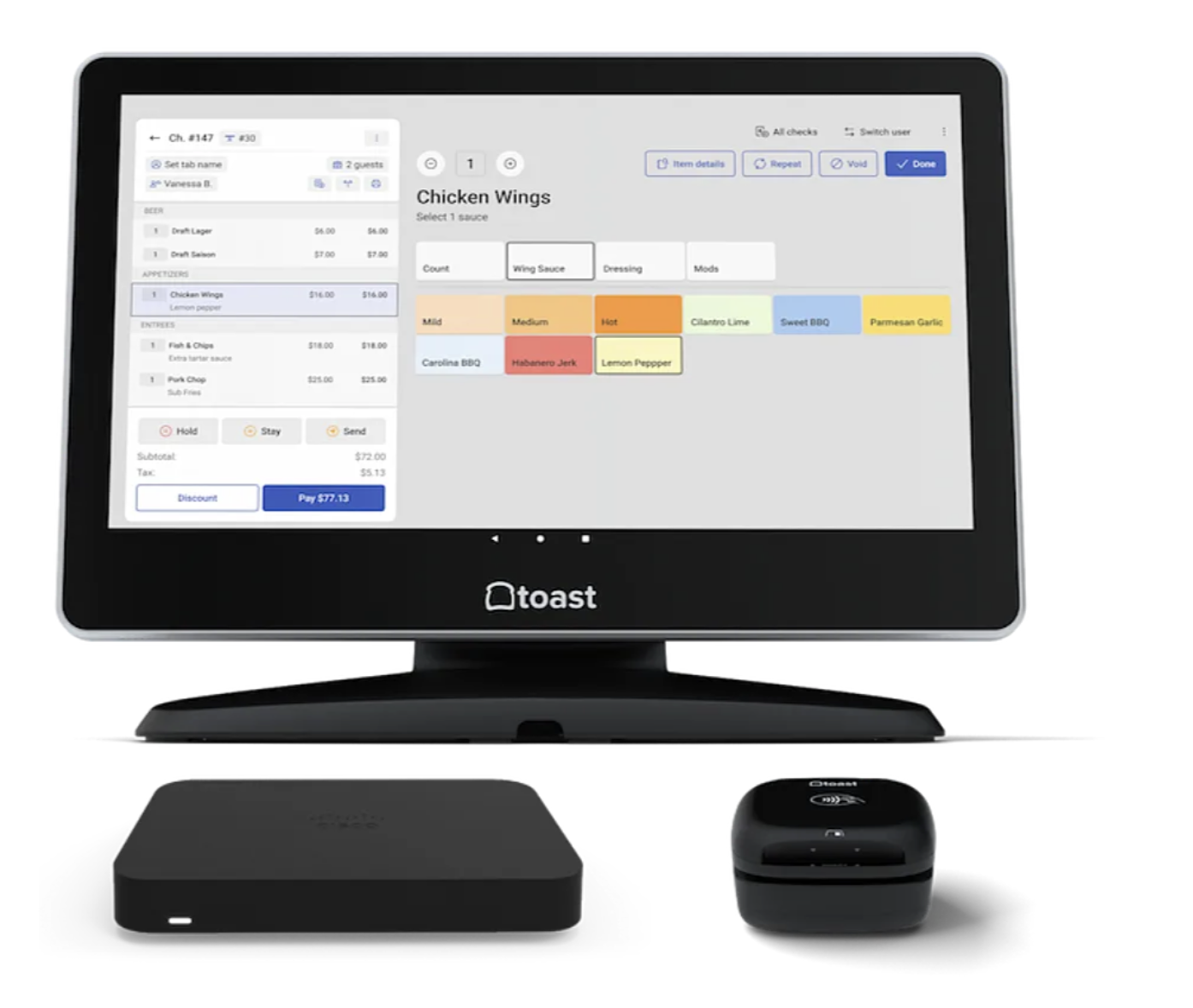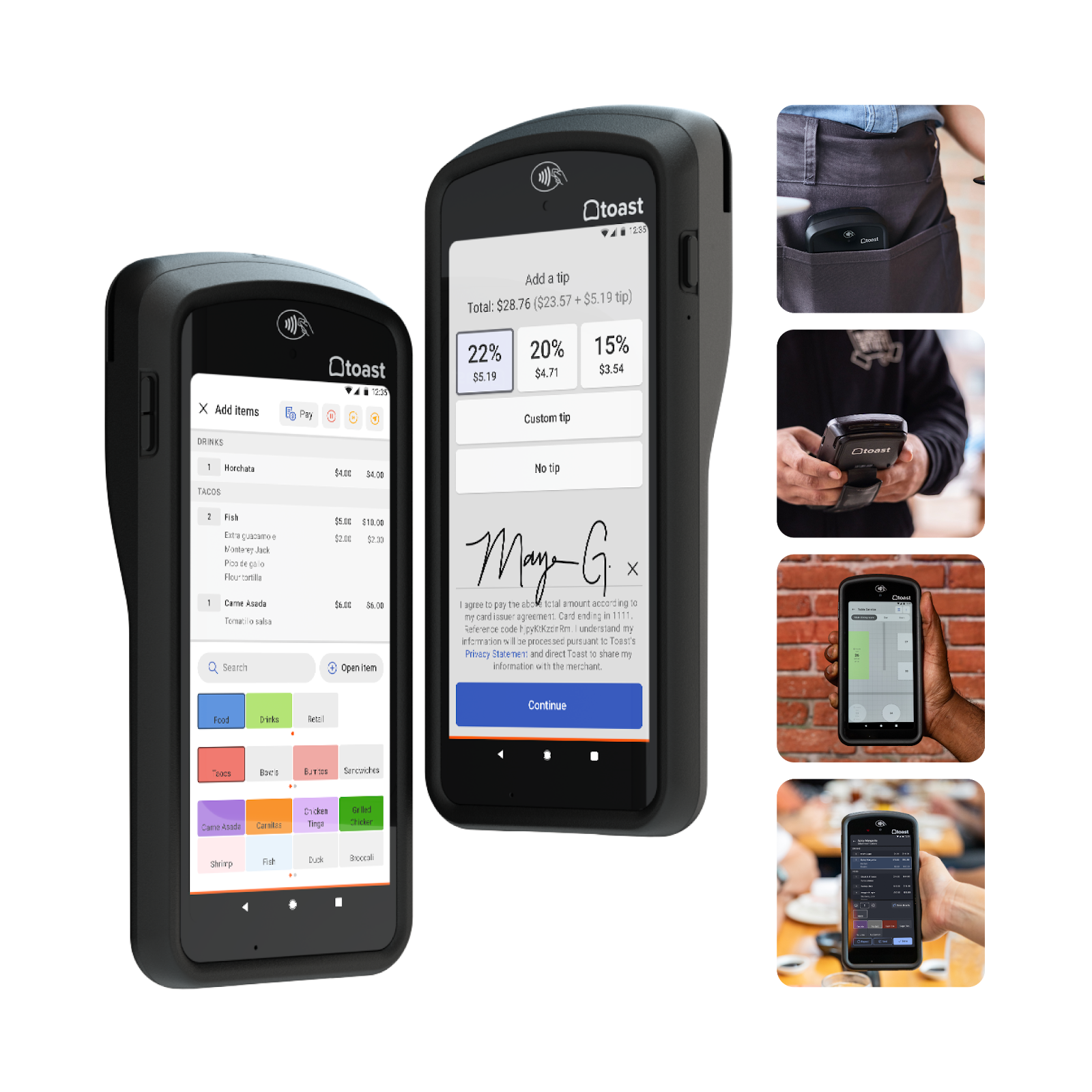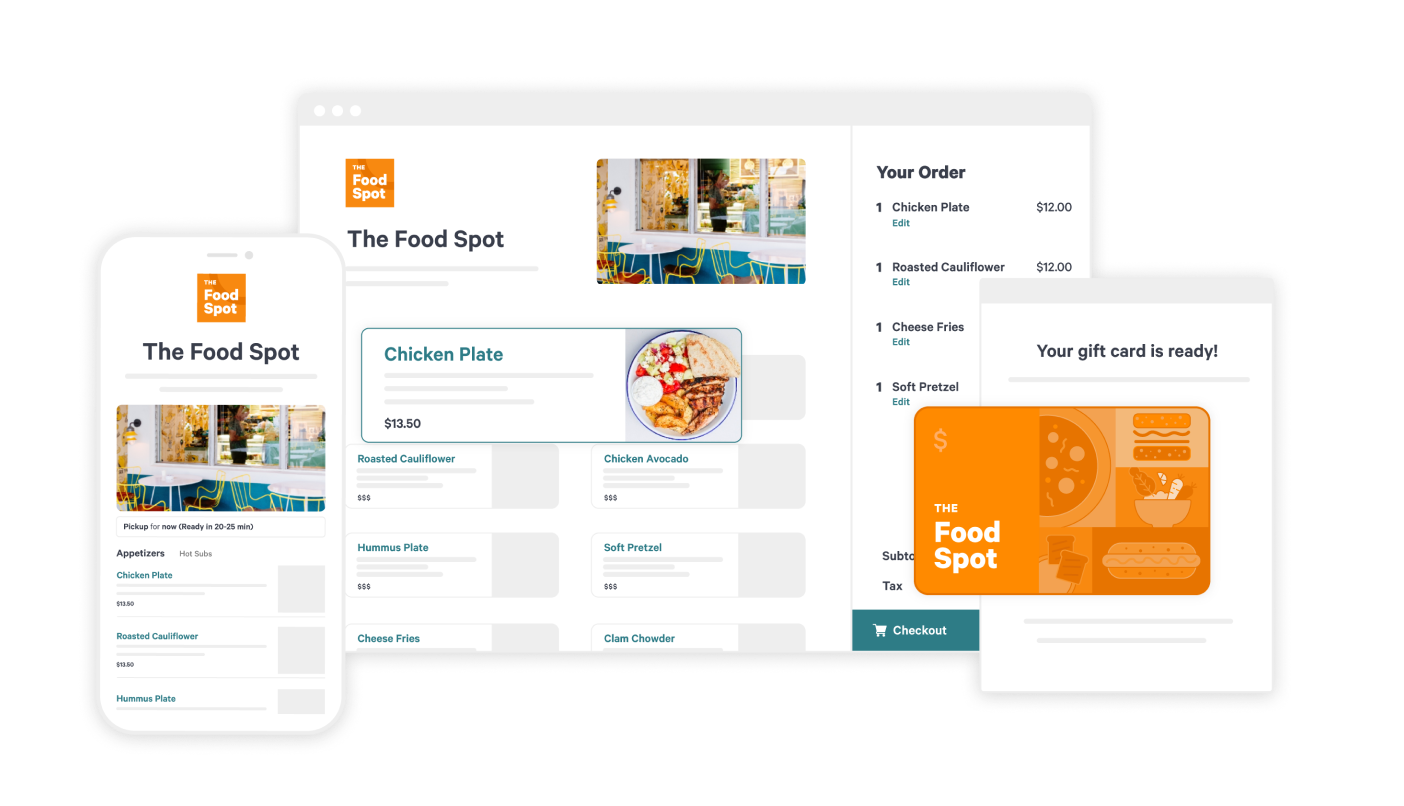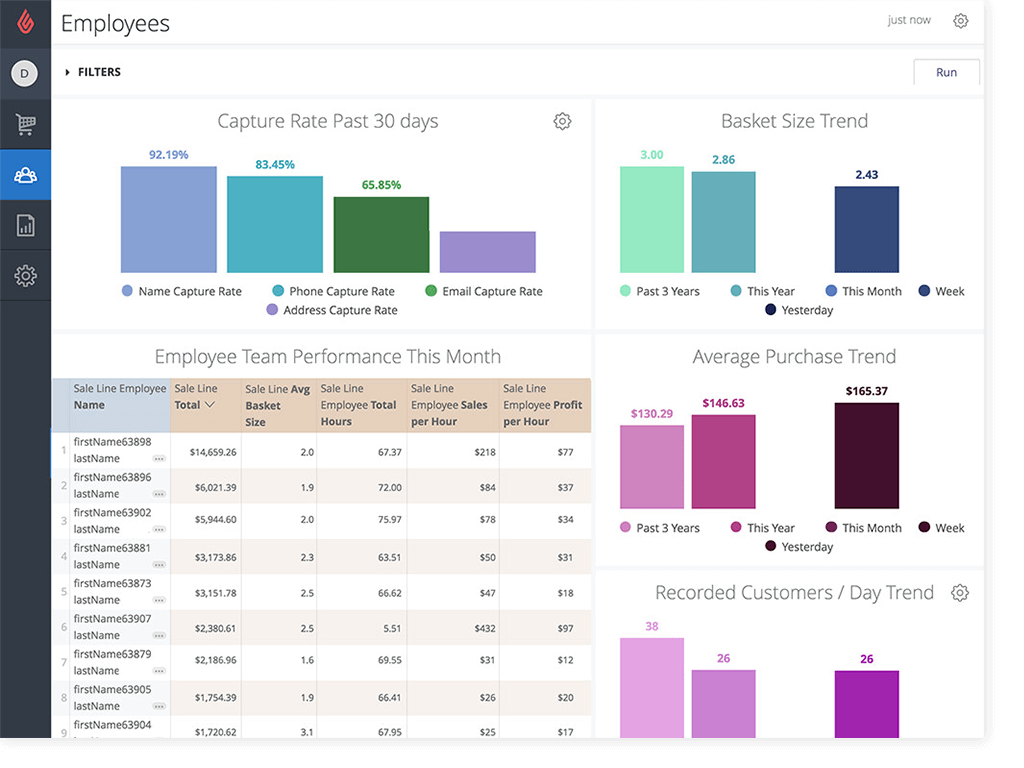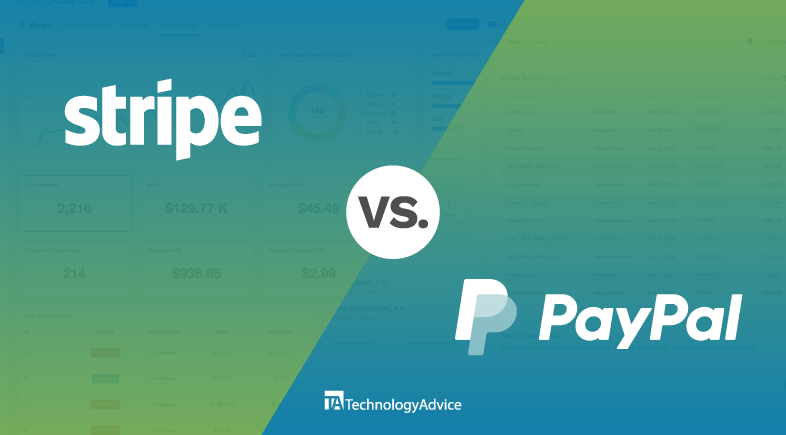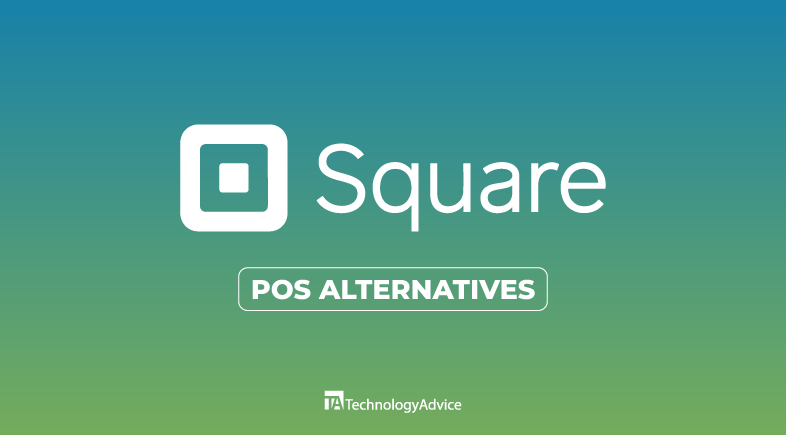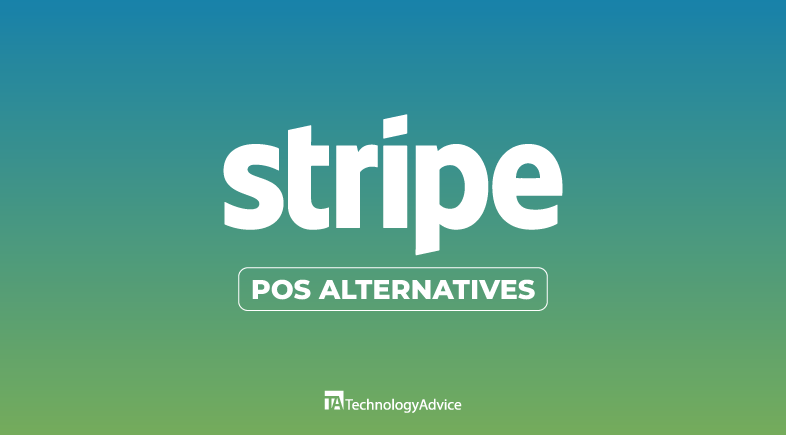Cloud-based point of sale (POS) systems are POS solutions whose data are stored and accessed via an internet browser rather than on local servers. In my years of evaluating business software, I found that cloud-based POS systems tend to be superior in terms of security, ease of use, and update abilities than traditional POS.
The best cloud POS systems will also excel in real-time data access, integration capabilities, omnichannel functionalities, and multi-location features. For this guide, I compared the top cloud-based POS systems on the market based on 33 data points that evaluate value for money, scalability, and real-life user reviews.
Here are the six best cloud POS systems in 2025:
Best cloud POS systems compared
Company
Our score (out of 5)
Monthly account fee
POS software type
Hardware options
Payment processing options
E-commerce options
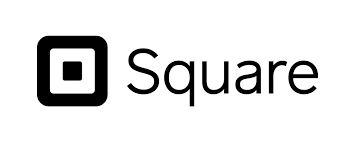
4.39
$0-$192
Basic
Retail
Restaurant
Services
Mobile
Smart terminal
Tablet stand
Countertop
Square Payments
Square E-commerce

4.17
$0-$89
Basic Retail
Mobile
Smart terminal
Tablet stand
Shopify Payments
Third-party
Shopify E-commerce

4.11
$0
Basic
Mobile
Smart terminal
Helcim Payments
Helcim E-commerce
Third-party integration

4.11
$0-$84.95
Retail
Restaurant
Services
Mobile
Smart terminal
Tablet stand
Countertop
Clover Payments
Third-party
Clover E-commerce

4.11
$0-$579
Restaurant
Food retail
Mobile
Smart terminal
Countertop
Toast Payments
Toast
Third-party integration

4.10
$89-$269
Retail
Restaurant
Services
Mobile
Smart terminal
Tablet stand
Countertop
Lightspeed Payments
Third-party
Lightspeed E-commerce
Third-party integration
All the providers on this list offer key cloud POS features, such as remote access to real-time data, omnichannel capabilities, automatic updates and maintenance, and multi-location management.
To help you find the best match, keep in mind these guide questions as you go through my evaluation:
- Does it have the POS software features that your business needs?
- Is the software and hardware pricing reasonable for your current margins?
- Does it support payment processing fit for your business’ level of sales?
- Can the POS system grow with your business?
Learn more:5 Ways Cloud-Based POS Systems Beat Cash Registers by a Mile

Square: Best overall, all-in-one, cloud-based POS
Overall Score
4.39/5
Pricing
4.46/5
Hardware
4.79/5
Software features
3.33/5
Cloud POS features
4.69/5
User experience
4.38/5
Average user scores
4.67/5
Pros
- Free starter plan + Plus, Premium, and bespoke options
- Retail, restaurant, and appointment POS systems
- In-house payments, online, hardware, and marketing tools
- Affordable add-ons for extra, specific functionality
Cons
- Exclusive payments, hardware, and e-commerce
- Limited customer support hours
- No bulk processing discounts
Square is a leader in the point of sale space, with industry-specific systems for retail, restaurants, and appointments. The system cannot be beat for the number of industries it covers, the in-house tools it has to offer, and the range of business sizes it can serve.
I recommend Square for small and new businesses on a budget. Its feature-rich, all-in-one, free plan that includes integrated payments, an online store, basic inventory management, reporting, CRM tools, multistore management, and staff logins. From there, you can upgrade to Square’s advanced paid plans or opt for a custom POS with discounted processing rates if you operate at the enterprise level.
I also like Square for its array of add-on tools for payroll, SMS and email marketing, loyalty, and more — allowing Square to keep its plans affordable while you pay only for the tools you need. However, as a cloud-based system, Square’s biggest downfall is a lack of integration with third-party payment processors. For a more flexible solution, check out my review of Clover, Shopify, and Lightspeed on this list.
- Value for money: Excellent
- Contract terms: Month-to-month
- Security: Excellent, with chargeback management
- Offline transaction processing: Yes
- AI-powered POS features: Business insights, customer messaging, team communication, e-commerce product photos, menu generator
POS subscription:
- Basic POS: $0
- Paid plans: Per month, per location:
- Retail: $89
- Restaurants: $60/$165
- Appointments: $29/$69
Along with the advanced features that come with its software plans, Square also offers add-on tools that you can tack on to any of its POS plans:
- Square Online Plus: $29 per month (billed annually)
- Square Marketing: $15 per month for email marketing; $20 for text message marketing
- Square Loyalty: Starts at $45 per month
- Square Payroll: $35 + $6 per employee monthly
- Team Plus: $35 per month per location (included free in the Retail Plus plan)
- Square Invoices: $0-$20 per month
- Square Gift Cards: $0.50-$1.50 per card
Payment processing:
- In-person: 2.6% + 15 cents per transaction
- Online: 2.9% + 30 cents per transaction
- Invoices: 3.3% + 30 cents per transaction
- Keyed-in payments: 3.5% + 15 cents per transaction
- Pay Later: 6% + 30 cents per transaction (via CashApp-AfterPay)
Hardware:
There are several in-house hardware options you can purchase outright or via monthly financing outlined below. Additionally, Square offers a variety of hardware accessories to use alongside its hardware or with your personal computer or tablet.
- Square contactless reader: $59
- Square Stand: $149
- Square Terminal: $299
- Square Register: $799
- POS system basics: Square’s POS systems include all the basics to run your business: inventory management, reporting, CRM, employee controls, marketing tools, a great checkout interface, sales channel integrations, order management, and integrated payment processing. These features are included in Square’s free POS, but you can get more advanced options if you upgrade to a paid plan.
- Industry-specific POS systems: In addition to its general purpose POS, Square offers three industry-specific POS systems for restaurants, retailers, and appointment-based businesses like spas, salons, and other service providers. Each of Square’s POS systems comes with tools specifically designed for its industry, free and advanced versions, and industry-grade hardware options.
- Online store: All Square accounts come with a free online store that you can build and customize for your business with Square Online. Each industry-specific POS system includes an online store — e-commerce for retailers, online ordering for restaurants, and booking for wellness and service businesses. If you have an existing online store, you can integrate some third-party e-commerce solutions with your POS, but the options are limited. However, Square can build you a custom API if you are tied to your current platform.
- POS app: Square offers a free POS app for both Android and iOS. The app allows you to take your sales on the go and is complete with Tap to Pay functionality, meaning you can take payments by simply tapping a credit card to your phone — no additional hardware required.
- Integrated payments: Square comes pre-integrated with Square Payments, its in-house payments solution. Square Payments offers competitive flat-rate processing and can be used to process all payment types, both in person and online. Additionally, Square has partnered with Afterpay, so you can offer customer financing for both in-store and online purchases.
- Add-on tools: Along with Square’s advanced plan options, you can purchase add-on tools — such as payroll, loyalty programs, an upgraded online store, and outreach marketing tools — for a monthly fee on top of any of Square’s POS plans. This means you can add the tools you need and avoid the ones you don’t. There are also a number of third-party tools that you can integrate into your POS.
- Bespoke POS option: If your business outgrows Square’s Plus and Premium plans, Square offers custom POS plans where you work with Squa
Read: What is a POS System? Overview, Meaning & Best Practices

Shopify POS: Best for e-commerce expanding to in-person sales
Overall Score
4.17/5
Pricing
4.11/5
Hardware
4.38/5
Software features
3.96/5
Cloud POS features
4.06/5
User experience
3.96/5
Average user scores
4.53/5
Pros
- Top-of-the-line e-commerce platform
- Multiple plans to support SMBs to enterprise businesses
- Integrations with TikTok, Instagram, Facebook, Google Shop, Amazon, eBay, and more
- Shipping discounts with all major carriers
Cons
- Added fee for third-party processing
- Limited reporting in Basic and Shopify plans
- No checkout page customizations
When it comes to e-commerce, Shopify is the industry leader. With top-of-the-line tools for managing orders, converting sales, completing transactions, building a website, accessing discounted shipping rates, and even selling wholesale and B2B, Shopify is ideal for businesses that operate primarily online. Shopify’s checkout interface, ShopPay, converts 15% more sales compared to other e-commerce platforms.
Shopify’s cloud-based POS solution is great for expanding into in-person sales, such as in farmers’ markets, trade shows, and conventions. It comes with a free e-commerce subscription and a paid upgrade option. However, what makes Shopify stand out as a POS provider is its unbeatable omnichannel functionality that integrates with Shopify’s leading e-commerce platform. It also includes integrated payments, inventory management tools, CRM, and add-on tools, along with proprietary mobile card readers and tablet stands for a countertop setup.
That said, I did have to dock points for Shopify’s lack of industry-specific POS features. It also lacks in-depth reporting in its budget-priced packages. For more in-depth insights from your POS, we recommend considering Lightspeed, though it’s a costlier option.
- Value-for-money: Good
- Contract terms: Month-to-month
- Security: Great
- Offline transaction processing: Limited
- AI-powered POS features: Chatbot integration, image editing, product descriptions, machine learning fraud protection
POS subscription:
- Basic POS: $0 (with e-commerce subscription $25-$399)
- Paid plans:
- $5 (without e-commerce)
- $89 per month, per location (Pro)
Payment processing:
- In-person: 2.4% + 10 cents to 2.6% + 10 cents per transaction
- Online: 2.5% + 30 cents to 2.9% + 30 cents per transaction
Hardware:
Shopify also offers hardware options for both in-store and mobile operations. Additionally, you can use the Shopify POS app to complete sales from your mobile device. Because the app includes Tap to Pay functionality and barcode scanning, there is no hardware required. Shopify’s hardware options include:
- Countertop kit: $459
- POS Go: $299
- Shopify Tap & Chip Reader: $49
- POS accessories: $0–$89
- E-commerce site builder: Use one of Shopify’s hundreds of e-commerce templates to build your site, including industry-specific options for every kind of small business. The site builder is easy to use, allows for customization, and lets you make changes to your site at any time straight from your POS. Note, however, that many of Shopify’s templates come at an additional cost.
- Shopify Payments: Every Shopify account comes complete with Shopify’s in-house payment processor, Shopify Payments. You can opt for a third-party payment processor; however, you will incur an additional processing fee ranging from 0.6% to 2% per transaction.
- POS system: Along with your e-commerce Shopify account, you will also get Shopify’s Lite POS system. The Lite POS includes features such as inventory management, reporting, staff management, and CRM tools at a very basic level. If you need a more advanced POS system, however, you can also upgrade to POS Pro.
- Shipping discounts: To help save you time and money on your online orders, you can shop discounted shipping rates from all major shipping companies and print labels straight from your Shopify account.
- Omnichannel selling: Integrate all your sales channels into your Shopify POS so you can unify inventory, staff, and customer management everywhere you sell. Shopify includes sales channel integrations for your online store, in-person sales, Instagram, Facebook, TikTok, eBay, Google, Amazon, and more. Simply add the sales channels you want to track from your Shopify account, and Shopify will take care of the rest.
- Marketing automations: Shopify includes an array of marketing features to help grow your business. These include tools to hone your store’s SEO, build your brand, create targeted ads, identify new customers, and reach out to existing customers through email and SMS based on automated triggers.
- Shopify App Store: If you need a tool that Shopify doesn’t offer in-house as part of your plan, you can integrate hundreds of third-party tools into your Shopify POS via the Shopify App Store. This includes apps for things like loyalty programs, inventory management, outreach marketing, and analytics. Note, however, that many of these tools come with monthly fees.
Learn more: What Are the Different Types of POS Systems?

Helcim POS: Best for professional services and B2Bs
Overall Score
4.11/5
Pricing
4.46/5
Hardware
4.17/5
Software features
3.54/5
Cloud POS features
4.38/5
User experience
4.17/5
Average user scores
3.93/5
Pros
- Forever-free POS
- Invoicing and subscription management tools
- Interchange-plus payment processing
- Automatic bulk processing discounts
Cons
- Only basic POS features with no advanced plans
- Limited third-party integrations
- Merchant application not ideal for new merchants
Helcim is primarily a payment processing company best known for its interchange-plus processing rates and automated bulk discounts. However, the provider also offers a great POS system, with unlimited inventory and customer relationship management features, completely for free. The cloud-based POS comes with features designed to support professional services, such as accounting, auto repair, and healthcare. It’s also ideal for wholesalers selling to local clients.
Helcim also provides a native website builder that’s easy to use and can set up online subscriptions, appointment settings, and bulk purchases. But what ties this all together is Helcim’s payment processing tools, such as invoicing, billing management, online and in-person surcharging, and level 2 and 3 data processing for B2B transactions — at no extra cost. Other providers on this list will charge you additional monthly fees to access these features.
That said, Helcim is a primarily exclusive system, which means that third-party integrations are very limited. Square, though also exclusive, has formed more third-party vendor partnerships and can be a better fit if you already have preferred business platforms.
- Value-for-money: Excellent
- Contract terms: Month-to-month
- Security: Great
- Offline transaction processing: Limited
- AI-powered POS features: Machine-learning fraud monitoring, level 2 and 3 data fee optimization
Helcim charges $0 monthly software fees for its POS system and offers no advanced plans. You can operate and access your POS from your browser or via mobile for free. However, you will have to purchase the Helcim card reader to start accepting payments. The card reader is highly affordable at $99.
Alternatively, you can purchase the Helcim Smart Terminal, a complete mobile POS system for checking out customers, processing payments, and printing receipts. The Helcim Smart Terminal costs $329, or you can opt to finance the device for five monthly payments of $68.
The only monthly fee you will incur from Helcim is your payment processing fee, which varies depending on how much you process each month. The table below outlines how much you can expect to incur in processing fees based on your sales volume. You can also use Helcim’s fee calculator to estimate how much you can expect to pay in processing.
Transaction Value
In-Person
Online or Keyed-In
$0-$50,000
0.4% + 8 cents
0.50% + 25 cents
$50,001-$100,000
0.35% + 7 cents
0.45% + 20 cents
$100,001-$500,000
0.25% + 7 cents
0.35% + 20 cents
$500,001-$1,000,000
0.20% + 6 cents
0.25% + 15 cents
$1,000,001+
0.15% + 6 cents
0.15% + 15 cents
- Payment page: Add a Helcim payment page to any site with no programming necessary, and you can start making sales, collecting invoices, or even charging for recurring subscriptions. Start by adding a Helcim “Buy Button” or QR code to any webpage. When customers click, they will be taken to the Helcim payment portal to complete their transaction.
- E-commerce: While Helcim’s POS does not integrate with third-party ecommerce platforms, Helcim offers an in-house e-commerce solution with options for both retail and online food ordering.
- Invoicing: Add Helcim’s invoicing software to your POS to streamline your billing and payment procedures. With Helcim’s interchange-plus rates, you can save significantly on processing fees.
- CRM: Add customers to your customer directory, log the contact information, store payment methods, and view their activity.
- Interchange-plus pricing: Helcim uses interchange-plus pricing for its processing fees, ensuring that you get the lowest rates by avoiding any merchant markups. Not only that, the more payments you process, the more you save with Helcim’s automated bulk discounts. You can use Helcim’s fee calculator to estimate just how much you will save with their pricing model.
- Subscription management: Use Helcim’s Subscription Manager to set up recurring payments and collect fees for subscription services right from your POS.
- Free POS system: Every Helcim account comes with a free POS system that includes all the basic tools you need to take payments and manage your business, including inventory tracking, CRM tools, and reporting. The POS system can operate on your personal device or the Helcim Smart Terminal — simply pair it with the Helcim card reader to get started.
- Inventory management: Add inventory, log it in your inventory catalog, and track its levels and performance so you never miss a beat.
- Reporting: Review your business’s performance with reporting tools that log your sales totals, tipping information, all your transactions, tender use, sales by category, invoicing totals, sales by products, and discount information.
Also read: How Much Does A POS System Cost?

Clover: Best for third party customizations
Overall Score
4.11/5
Pricing
4.11/5
Hardware
4.58/5
Software features
3.75/5
Cloud POS features
4.69/5
User experience
3.75/5
Average user scores
3.8/5
Pros
- Industry-specific POS systems
- Option to use a third-party payment processor
- Option to bundle hardware and software into monthly installments
- Tap-to-Pay-enabled mobile app
Cons
- Must purchase proprietary hardware
- Very basic tools in paid entry-level plan
- Cannot reprogram system if you want to switch payment providers
Clover is a highly customizable POS software and hardware provider. Like Square, Clover offers industry-specific POS solutions for retail, restaurants, and service-based industries. But, unlike Square, which offers most services in-house, Clover allows you to customize your POS system with third-party payment providers, e-commerce solutions, apps, and more.
By default, you can purchase the system from its parent company, Fiserv, which then provides you with Fiserv merchant account pricing plans. I like how you get all the basics you need from the system — inventory management tools, CRM, reporting, payment processing, an e-commerce store, and even a custom loyalty program. The cool thing, however, is that you can opt for additional third-party tools to enhance any of these features so that the Clover POS suits your needs.
If you already have a merchant account and payment processor, you can still upgrade to a Clover POS system and keep your merchant ID. Clover is supported by a number of payment processor resellers so you can keep the transaction rates that best work for you. From there, however, you cannot reprogram your POS systems to accommodate different payment providers — the merchant you chose is what you’ve got, and you can’t change it after the fact. If that’s a deal-breaker for you, consider Lightspeed Retail.
- Value-for-money: Great
- Contract terms: Depends on payment processor
- Security: Excellent
- Offline transaction processing: Yes
- AI-powered POS features: Targeted customer promotions and offers, analytics, self-ordering kiosk
POS subscription:
- Retail:
- Payments only: $0
- Essentials: $14.95/mo
- Retail growth: $84.95/mo
- Restaurant
- Basic: $14.95/mo
- Full service: $89.95/mo
- Quick-service service: $59.95/mo
- Services
- Payments only: $0
- Essentials: $14.95/mo
- Services growth: $84.95/mo
Please note that these fees are guaranteed if you purchase directly from Clover. Prices may change if you sign up with a third-party reseller.
Payment processing:
If you opt to use Clover’s in-house payment processing solution rather than a third-party integration, your rates are as follows (rates vary based on plan tier):
- In-person: 2.3%-2.6% + 10 cents
- Online: 3.5% + 10 cents
Hardware:
As with Clover software pricing, the following fees are quotes from the Clover website. Pricing may change if you are working with a third party reseller.
- Mobile card reader: $79
- Smart terminals: $329
- Countertop: $199
- Industry-specific POS solutions: Clover offers POS solutions for retail, restaurants (including full and quick service), and service providers. They are complete with industry-specific features and hardware solutions.
- Third-party customizations: Clover can accommodate third-party customizations via custom APIs. This includes custom tools for anything from payment processing to e-commerce to inventory management. You work with a developer to create the system you need with the tools you want.
- Clover Online: If you don’t have an existing e-commerce store that you want to integrate with your Clover POS, you can add Clover Online to your POS account to build an e-commerce store with its in-house platform.
- Clover Payments: For users who don’t have a specific payment processor that they want to use, you can opt for Clover’s in-house payments solution, Clover Payments. With this solution, you can accept all payment types at a flat processing rate, both in-store and online.
- Inventory management: Clover offers inventory management tools for creating detailed product pages, logging your inventory in a log, and tracking your items as they sell.
- CRM tools: Log your customers, track their behaviors, and collect reviews.
- Proprietary hardware: Every Clover account includes sleek in-house Clover hardware that suits your needs. Clover offers mobile and desktop solutions along with industry-specific options for retailers, service providers, and restaurants.
- Loyalty program: All Clover accounts include a free loyalty program to drive repeat visits, with tools to offer both physical and digital gift cards, reward shoppers with redeemable points, and promote user reviews with review prompts that are built into your digital receipts.
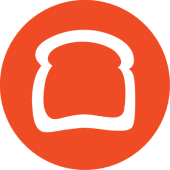
Toast: Best for restaurants and food retail
Overall Score
4.11/5
Pricing
3.57/5
Hardware
4.17/5
Software features
3.96/5
Cloud POS features
4.38/5
User experience
4.38/5
Average user scores
4.2/5
Pros
- Zero upfront cost, including hardware
- Industry-specific features
- Hardware options in free plan
- Industry-grade hardware
Cons
- 2-year contract
- Expensive, single flat-rate fee for free plan
- Additional fee for American Express transactions
Toast is an industry-leading cloud-based restaurant POS system. Like Lightspeed, it offers a top-of-the-line advanced inventory management feature along with native business management tools, and premium, industry-grade hardware. Recently, Toast also launched its retail POS software that works best for food retailers, such as convenience stores, pizzerias, and liquor shops.
Unlike Lightspeed, Toast offers an all-in-one free plan that offers a choice of countertop, handheld, or self-service kiosk hardware kit, advanced restaurant features, and a built-in payment processing bundle. This means zero upfront cost for those on a limited budget. The downside is expensive transaction rates that I list in detail below. An alternative is a traditional pricing plan with more competitive processing fees but it will require you to purchase hardware outright.
All things considered, you would be hard-pressed to find a more equipped restaurant cloud POS system than Toast. If you don’t mind being locked into a long-term contract and payment processor, it is the best choice no matter your budget. Otherwise, check out Clover for a more flexible option.
- Value-for-money: Great
- Contract terms: 2-year contract
- Security: Excellent
- Offline transaction processing: Yes
- AI-powered POS features: Fraud prevention, sales and labor forecasting, marketing assistant, voice AI integration for phone orders and customer inquiries, benchmarking
POS subscription:
- Pay-as-you-go pricing: $0
- Traditional pricing: Countertop and handheld
- Basics: $69/month
- Core: $219/month
- Growth: $579/month
- Traditional pricing: Self-service kiosk
- Basics: $99/month
- Core: $249/month
- Growth: $609/month
- Build Your Own: Custom pricing (suggested for multilocation restaurants wanting high customizability)
Payment processing:
- Pay-as-you-go
- Basics: 3.09% + 15 cents
- Core: 3.39% + 15 cents
- Growth: 3.69% + 15 cents
- Traditional pricing: Countertop, handheld, self-service kiosk
- Card-present: 2.49% + 15 cents
- Card-not-present: 3.50% + 15 cents (Visa, Discover, and Mastercard)
- American Express: 3.50% + 15 cents
- Build Your Own: Custom-quoted
Hardware:
- Pay-as-you-go
- Countertop kit: $0
- Handheld kit: $0
- Traditional
- Countertop kit: $1,123.20
- Handheld kit: $898.20
- Self-service kiosk: $1,438.20
- Add-ons
- Guest display: $225
- Handheld Toast Go 2: $494.10 + $50/month
- Second terminal: $719.10 + $50/month to $944.10 + $50/month
- Kiosk: $1,034.10 + $90/month
- Kitchen display: $674.10 + $35/month
Professional remote installation: $250
- Toast mobile app: Toast Now is a mobile app that allows users to communicate with staff on the go, access real-time business reports, and manage ordering as well as delivery channels.
- Restaurant management: Provides advanced management tools for multilocation restaurants, such as menu management, inventory tracking, menu management, analytics, benchmarking, and more.
- Advanced restaurant inventory management: xtraCHEF is Toast’s replacement to its built-in inventory management feature. It provides real-time ingredient tracking, vendor and purchase order management, digital cookbooks and drag-and-drop recipe builder, accounts payable automation, and more.
- Kitchen display system: Toast offers a kitchen display system with a software interface and a screen display that supports color-coded tickets display order status and order type, such as for here, takeout, or delivery.
- Self-ordering kiosk: Toast’s latest all-in-one kit is the self-ordering kiosk that allows customers to customize their orders with add-ons and also deliver the Toast Tap method, a contactless payment process for even speedier results.
- Catering & events platform: If you run a catering business, Toast provides a platform that allows you to manage events, customize menu and services, send out invoicing, and offer multiple payment options.
- Customizable interface: Toast’s industry-grade hardware includes a customizable touch-screen display where you can set up quick access to the most popular items on your menu, payment methods, and promotions. The cloud-base function helps with managing table reservations for both countertop and handheld devices.

Lightspeed Retail: Best for multi-location management and complex inventories
Overall Score
4.10/5
Pricing
3.21/5
Hardware
4.17/5
Software features
4.38/5
Cloud POS features
4.69/5
User experience
4.17/5
Average user scores
3.97/5
Pros
- Granular, matrix inventory management
- Integrated product catalogs
- Vendor management tools
- Custom reporting with actionable insights
Cons
- High price point and no bulk processing discount
- Additional processing fee if you use a third-party merchant
- Complex user interface
Lightspeed is another great cloud POS option for retailers large and small. Its retail system, Lightspeed Retail or Lightspeed R-Series, comes equipped with all the basics you need to manage a retail store. This includes integrated flat-rate payment processing from Lightspeed Payments, an in-house ecommerce platform — Lightspeed eCommerce — plus sales channel integrations, inventory management, CRM tools, a customizable checkout, reporting tools, and 24/7 customer support.
What most impresses me about Lightspeed, however, is its inventory management tools and reporting capabilities. Lightspeed offers granular matric inventory tools — perfect for large, complex inventories — integrated product catalogs, and vendor management tools, so you can place orders and communicate with your product vendors right from your POS. An advanced paid plan, Lightspeed Retail lets you maximize its cloud POS tools, such as stock management and advanced analytics great for managing multiple store locations.
That said, Lightspeed’s biggest downside is the high price point. And while it does allow you to integrate with a third-party payment processor, Lightspeed will charge an additional fee. If Lightspeed is a bit out of your budget, a Square for Retail POS is your best option. It has a very manageable fee structure that can be customized to fit about any budget. You will sacrifice some advanced reporting and more robust inventory management tools, but it should get your business up and running.
- Value-for-money: Good
- Contract terms: Month-to-month
- Security: Excellent
- Offline transaction processing: Yes
- AI-powered POS features: Automated ordering, website builder, fraud protection, analytics, menu creation
POS subscription:
- Lean: $89/month
- Standard: $149/month
- Advanced: $269/month
- Enterprise: Custom (includes custom processing rates)
Payment processing:
Lightspeed Payments comes included with all plans and is the default option for payment processing, however, you can integrate your Lightspeed account with a few other merchants. If you choose to do this, you will have to pay an additional third-party processing fee. For Lightspeed Payments, the processing fees are:
- In-person: 2.6% + 10 cents
- Online: 2.9% + 30 cent
Hardware:
Lightspeed also offers hardware options for both iPad and desktop setups. And while it might seem like a small win, I like how its website now discloses hardware pricing for better transparency.
- Mobile card readers: $49
- Countertop stands: $199
- Smart terminal: $399
- Customizable checkout: To expedite the checkout process, use Lightspeed’s tile tools to customize your checkout screen with your most used functions and products.
- Service orders: Create and manage service orders for repairs, alterations, or other services right from your POS.
- Inventory management: Lightspeed has some of the most advanced inventory management tools on the market designed for large, complex inventories with lots of product variations. Additionally, there are built-in purchase ordering and tracking functions, special order tools, bulk action features, low-stock alerts, and stock counting tools.
- Lightspeed B2B: Lightspeed includes built-in product catalogs where you can shop from thousands of products and place orders right from your POS. Items you order through Lightspeed-integrated catalogs are automatically added to your inventory catalog, complete with product details, to be tracked and monitored.
- Accounting integration: Lightspeed includes tons of accounting software integrations so you can do your bookkeeping right from your POS dashboard.
- E-commerce: Lightspeed integrates with several third-party e-commerce platforms, and its Standard and Advanced plans include Lightspeed’s in-house e-commerce solution, Lightspeed eCommerce.
- Loyalty program: For advanced users, Lightspeed includes a customizable loyalty program that tracks and rewards customers across all your sales channels.
- Reporting: Lightspeed provides tons of reporting tools including custom reports, customer behavior reports, inventory forecasts, and actionable insights and advice based on your performance.
- Marketing tools: Lightspeed offers tools to collect customer reviews, segment your shoppers, and send out automated alerts and promotions, and SMS marketing tools.
- Sales channel integrations: Track and manage your sales from everywhere you sell, including marketing places like Amazon, eBay, and Google Shop, as well as your social media platforms.
Still looking for more POS options? Check out our comprehensive Retail POS Buyer’s Guide.
Key features of cloud POS systems
If you are in the market for a cloud POS system for your business, you should look for the following features to ensure maximum functionality and value.
- Hardware: The best cloud POS systems will be able to operate without hardware but will have hardware options for both mobile and in-store operations. Most POS systems will have an in-house option as well as third-party hardware compatibility.
Related: Best POS Hardware for Business in 2024 - Customer management tools: You should be able to create customer profiles that include contact information, purchase histories, and customer notes. The best systems will allow you to create these profiles from within your CRM directory and at the points of sale. You should also look for the ability to add existing customer profiles to transactions.
- Inventory management: At a minimum, you should be able to create detailed product pages that are logged in your inventory catalog, upload inventory in bulk, and track your inventory levels in real time. The best systems will also send automated low-stock alerts, allow you to create purchase orders, create detailed inventory reports, and manage your vendors all from your POS.
- Staff management: You should be able to create separate staff log-ins with set permissions so you can keep your business secure and track individual performances. The best systems will also have scheduling, payroll, time clock, and shift management tools.
- Payment processing: Your POS systems should come set up with payment processing. Most systems offer an in-house system that is either flat rate (ideal for SMBs) or bulk discounted (ideal for enterprise businesses). The best systems will offer interchange plus rates or the option to integrate a third-party merchant so you can shop around for the best deal.
- Industry-specific tools: What you need your POS systems to do will vary from business to business. For restaurants, retailers, and service providers, you should look for industry-specific POS options to ensure you have the most relevant set of features.
- POS app: Your cloud POS should include a POS app so you can take your business on the go and make sales from anywhere. The best POS apps include tap-to-pay functionality, so you need no additional hardware to process payments — just your mobile device.
- Marketing tools: To help your business grow and keep customers engaged, you should look for an option that includes marketing tools like SMS and email marketing, automated triggers, a loyalty program, discounting and promotion management, and marketing reports to assess the success of your initiatives.
- Offline capabilities: To ensure you can keep your business going in the case of an internet outage, you should look for options that include offline payment processing and inventory syncing.
- Ease of use: Be sure to check out customer reviews and utilize any product demos to ensure your POS system is user-friendly. This will ensure that your staff can keep operations running smoothly, and you can utilize everything your POS has to offer.
- Reporting: Your POS system should include sales and inventory reports, at minimum. The best systems will also include reports on taxes, discounts, payments, and more. They will also allow you to segment your reports by time and product categories, create custom reports, and even provide actionable insights into how you can use your store data to boost performance.
- Growth options: You should always assume your business will become more successful over time, and to avoid the headache of having to change POS systems as a result of your growth, you should look for options that have multiple plans that can grow with you. The best options will even include bespoke plans for enterprise-level operations.
- Integrations: While you should hope to keep most of your POS tools in-house for maximum ease, you should also look at what integration options the system has to offer. These add-on tools are great if you need a highly specific tool or are already using a certain platform and want the ability to seamlessly integrate it with your POS.
Also read: 24 Key POS Features You Need
Finding the right solution for your needs
Cloud POS systems are a great option for businesses that want to access their business from anywhere, take their sales on the go, and not be bogged down by costly servers that are hard to update and have a pricey cost of entry.
We believe that Square is the best cloud POS solution on the market. It offers industry-specific tools, add-ons, growth plans, and a top-of-the-line user experience. The system is ideal for businesses ranging from single-man operations and mobile sellers to enterprise-level operations.
However, for businesses that operate primarily online, Shopify is going to be your best bet. For those with complex or large inventories, we recommend Lightspeed. Meanwhile, Helcim is ideal for the professional services industry and interchange plus processing deals. Clover is also ideal for businesses that crave third-party customization options.
You really can’t go wrong with any of the options on this list. Simply evaluate your needs and budget, and the solution you are searching for is here.
Not finding what you are looking for? Check out our guide to the Best Point-of-Sale (POS) Software for more options.



